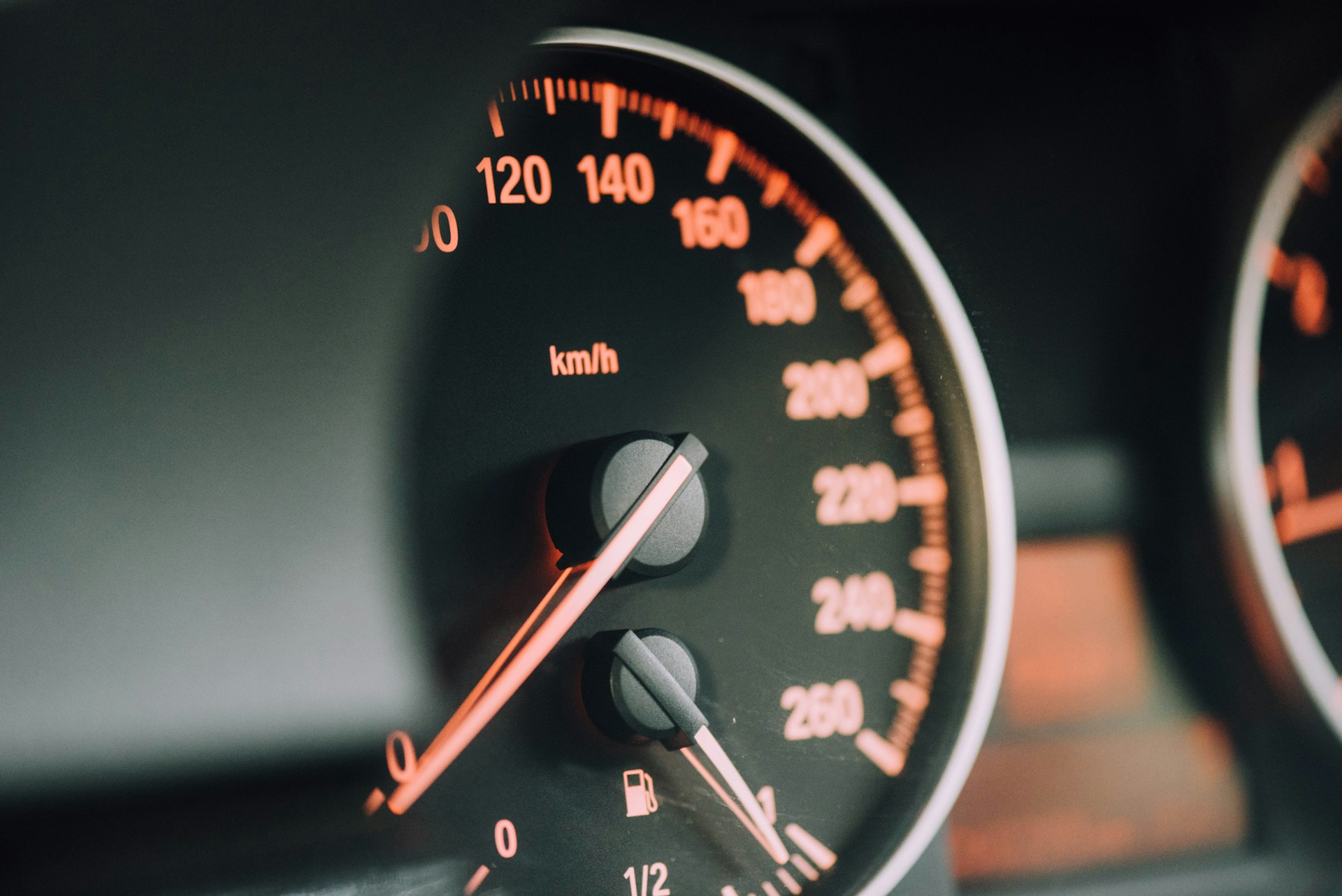Contents
What is a good mileage for a used car? This question is crucial for anyone in the market for a used vehicle. Understanding mileage helps you gauge a car’s condition and longevity. It’s not just about the numbers; how those miles were accumulated also matters. With this insight, you can make a more informed choice, ensuring you get a reliable car that fits your needs. Ideally, a maintained vehicle with fewer miles may promise more years of service. Even high-mileage cars can be a good buy with thorough maintenance records. Selecting the right used car involves balancing mileage with vehicle history and overall condition.
Table of Content
- Understanding Average Car Mileage Per Year
- How Many Miles Can a Vehicle Last?
- How Many Miles On A Used Car Is Too Much?
- How Many Miles On A Used Car Is Too Little?
- Should I Buy High-Mileage Cars?
- What’s More Important: Mileage Or Age?
- Other Factors That Affect a Car’s Value
- Summary
- FAQ
Understanding Average Car Mileage Per Year
Understanding average car mileage per year is key when navigating the used car market. The recommended mileage for a used car typically falls between 12,000 to 15,000 miles annually. This benchmark helps buyers evaluate whether a vehicle has been driven more or less than usual. Assessing this against the car’s age gives insights into its usage intensity, which can influence its future reliability and maintenance costs. To better understand a specific vehicle’s history, using a VIN Decoder is invaluable. It provides detailed records that can highlight any potential discrepancies or concerns before purchase. Here is a used car mileage chart that provides an overview of what might be considered typical, high, or low mileage for used cars:
| Car Age (Years) | Typical Mileage (Miles) | Low Mileage (Miles) | High Mileage (Miles) |
| 1 | 12,000 – 15,000 | Less than 12,000 | More than 15,000 |
| 3 | 36,000 – 45,000 | Less than 36,000 | More than 45,000 |
| 5 | 60,000 – 75,000 | Less than 60,000 | More than 75,000 |
| 7 | 84,000 – 105,000 | Less than 84,000 | More than 105,000 |
| 10 | 120,000 – 150,000 | Less than 120,000 | More than 150,000 |
How Many Miles Can a Vehicle Last?

The longevity of a vehicle often depends significantly on consistent and thorough car maintenance. A vehicle with decent mileage for a used car can frequently surpass expectations, reaching well beyond the 200,000-mile mark if maintained properly. Key practices such as regular oil changes, timely belt replacements, and attention to fluids and tires are crucial for extending vehicle life. These efforts not only help the engine last longer but also preserve the overall mechanical integrity of the car. Consequently, diligent maintenance ensures that the vehicle remains a reliable mode of transportation for many years, providing excellent value for its owner.
How Many Miles On A Used Car Is Too Much?

Determining if the mileage on cars is excessive involves more than just numbers. It’s essential to consider the care provided by prior owners. Vehicles that have been maintained by previous owners may handle high mileage better than those that haven’t. Typically, anything above 200,000 miles might raise concerns, but a documented service history can alleviate these worries. This background allows you to understand the vehicle’s past and assess its potential for future reliability. It makes the mileage a relative rather than an absolute indicator of condition. Evaluating this alongside the mechanical condition and expected lifespan gives a complete picture.
How Many Miles On A Used Car Is Too Little?
When searching for the best mileage to buy a used car, encountering one with unusually low miles warrants caution. Good mileage for a used car reflects reasonable use; too few miles can signal potential issues from infrequent driving. Ideally, a car should average 10,000 to 15,000 miles per year, indicating it has been regularly operated without excessive wear. Cars well below this range may require detailed inspections to ensure that lack of use hasn’t led to the deterioration of seals, gaskets, or other critical components. If you are looking for reliable models with ideal mileage, it’s a good idea to find cars for commuting. Such cars are suitable options for practical daily use.
Should I Buy High-Mileage Cars?
Deciding to buy high-mileage cars often depends on the specific vehicle and its history. The best high-mileage vehicles are those known for durability and reliability, even after accumulating many miles. These best cars for high-mileage driving typically come from brands renowned for their longevity and robust engineering. When considering a high-mileage car, it’s crucial to review its maintenance records and have a trusted mechanic inspect it. This approach ensures that the vehicle can handle additional miles without significant issues. This makes it a potentially wise investment for those looking for value in the used car market. Here’s a list of some of the most reliable high-mileage cars:
- Toyota Camry: Known for its robust engine and ability to handle high mileage without major issues.
- Honda Accord: Offers reliability and efficient performance, commonly reaching high mileage with proper care.
- Subaru Outback: Built to last and suited for varying driving conditions, making it a solid choice for high mileage.
- Ford F-150: Durable and capable, this truck maintains performance even with high odometer readings.
What’s More Important: Mileage Or Age?
When deciding between mileage and age in a used car, both factors play critical roles. Typically, the depreciation level of a vehicle is influenced more by its age than mileage. However, when considering how many miles you want on a used car, think about the car’s intended use and your budget. A newer car with high mileage might have depreciated more, offering a better price, yet still holds promise with proper maintenance. For those trying to balance these factors effectively, learning how to buy a car at auction can provide valuable insights into making a savvy purchase.
Other Factors That Affect a Car’s Value
Several elements impact a vehicle’s depreciation level beyond mileage and age. The type of driving is a key factor. City driving, with frequent stops and starts, often leads to quicker depreciation. It accelerates wear and tear on the engine and brakes. Conversely, highway driving is less strenuous on vehicles. It tends to preserve their value for a longer period. Additionally, factors like the car’s accident history and maintenance record also play crucial roles. These considerations are essential for assessing a vehicle’s overall value and its potential longevity. These details help determine a fair purchase price and anticipated future expenses.
Summary
When considering a pre-owned vehicle, understanding average used car mileage is crucial. This metric offers insight into the vehicle’s general usage and potential lifespan. Additionally, factors such as the type of driving, maintenance history, and the car’s age greatly impact its overall value. Each of these aspects should be carefully evaluated to ensure a wise investment. Educating oneself about these elements helps buyers navigate the used car market effectively. By doing so, they can make informed decisions that balance cost with the expected performance and durability of the vehicle. It ensures that potential buyers get the best possible deal for their needs.
FAQ
Is It Worth Buying a 10-Year-Old Car with Low Mileage?
Yes, buying a 10-year-old car with low mileage can be a good investment. Low mileage suggests that the car has experienced less wear and tear, potentially extending its lifespan.
What Is the Most Reliable Car Brand for High Mileage?
Toyota is often cited as the most reliable car brand for its high mileage. Vehicles from Toyota, such as the Camry and Corolla, are well-known for their durability and ability to surpass significant mileage.
What Is the Longest Lasting Reliable Car?
The Toyota Land Cruiser holds a reputation as one of the longest-lasting reliable cars. Known for its rugged durability and robust performance, the Land Cruiser often runs reliably for decades.
At What Mileage Do Cars Start Having Problems?
Cars can start having problems around 100,000 to 150,000 miles. This is typically when major components like the transmission and engine may begin to wear out.




